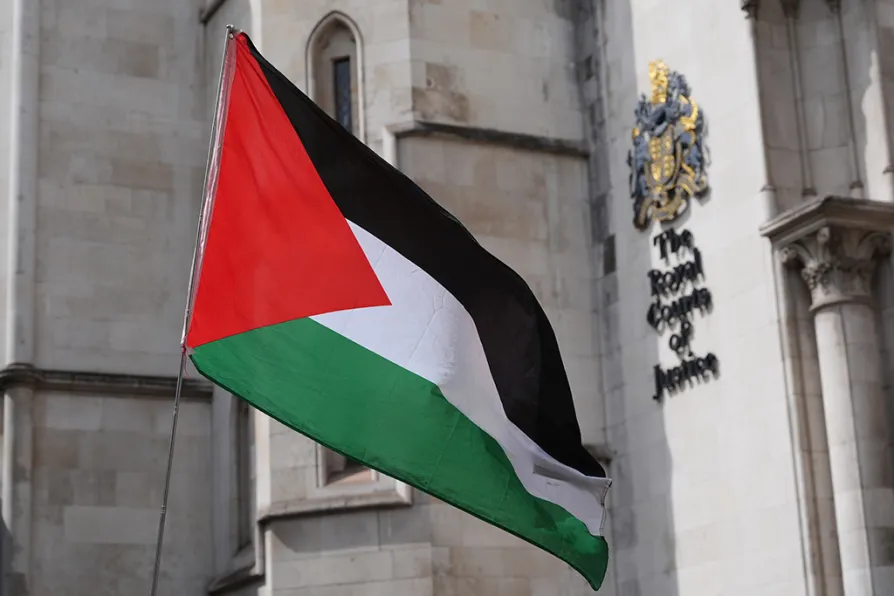

THE removal of Defend Our Juries’ website from the internet came just ahead of the first three charges of individuals for expressing support for Palestine Action since its ban.
Both underline the grave threat to freedom of speech in Britain emerging from years of governments seeking to silence solidarity with Palestine.
Defend Our Juries is campaigning to overturn the ban on the direct action group, which the government has absurdly labelled terrorist for having damaged two aircraft by pouring paint over them. But as it points out, lobbying for a ban on a proscribed group to be lifted is specifically recognised as lawful activity under the Terrorism Act.
The government has not itself ordered the removal of Defend Our Juries’ website. The civil rights group says its web host has been contacted with claims that the site is in breach of its terms and conditions.
But this is how censorship works. Outright bans are less common than self-censorship in response to pressure by third parties, or indeed simply to play it safe given confusion over what is and isn’t illegal speech.
That confusion is widespread — it applies to the police themselves, if we are to take the Canterbury officer who told a protester last month that “mentioning freedom of Gaza, Israel, genocide, all of that” falls under the ban on support for Palestine Action at her word.
And it is of course deliberate. As the inventive ways in which protesters have sought to circumvent the ban (bearing placards reading “I support Palestine, Action must be taken” and the like) show, consistent enforcement is all but impossible. What the government hopes to do is make people frightened of expressing support for Palestine in any form, because what is and what isn’t an arrestable offence is a grey area.
The pressure put on Defend Our Juries’ website hosts is similar to that applied to venues to deny platforms to awkward speakers.
The UN’s special rapporteur on Palestine Francesca Albanese was dramatically exposed to that in a February tour of Germany, where universities in Munich and Berlin, and the independent Berlin events venue the Kuhlhaus, all cancelled lectures she was due to give on international law under pressure from government and organisations supportive of Israel: Albanese ended up having to deliver her lecture at the headquarters of the German socialist newspaper Junge Welt.
It is a tactic familiar to British left-wing, and especially anti-war, activists. To date, Germany has seen the most severe repression of the Palestine solidarity movement in Europe, but authorities here are keen to catch up.
Shadow bans, where private companies censor their content in line with state preferences, are not new either: we know YouTube removed thousands of videos after the Ukraine war began, blocking public access to disapproved narratives on the ever-subjective grounds that they constituted disinformation.
And nor, in our capitalist world, is the pressure one-way.
The Guardian reported this week that Lord Richard Dannatt, a former head of the British army, wrote to Home Office ministers asking them to deal with the “threat” of Palestine Action — after a factory belonging to US multinational Teledyne, to which he is a paid adviser, was targeted by the group.
The report rings alarm bells over the extent of corporate influence over legislators, and the way firms which profit from war may promote their aims through supposedly disinterested dignitaries.
Shutting down protest in solidarity with a people facing genocide suits our political overlords and the global arms industry.
As courageous protesters and campaigns including Defend Our Juries show, though, there are plenty of people in Britain who aren’t prepared to roll over and accept it.













